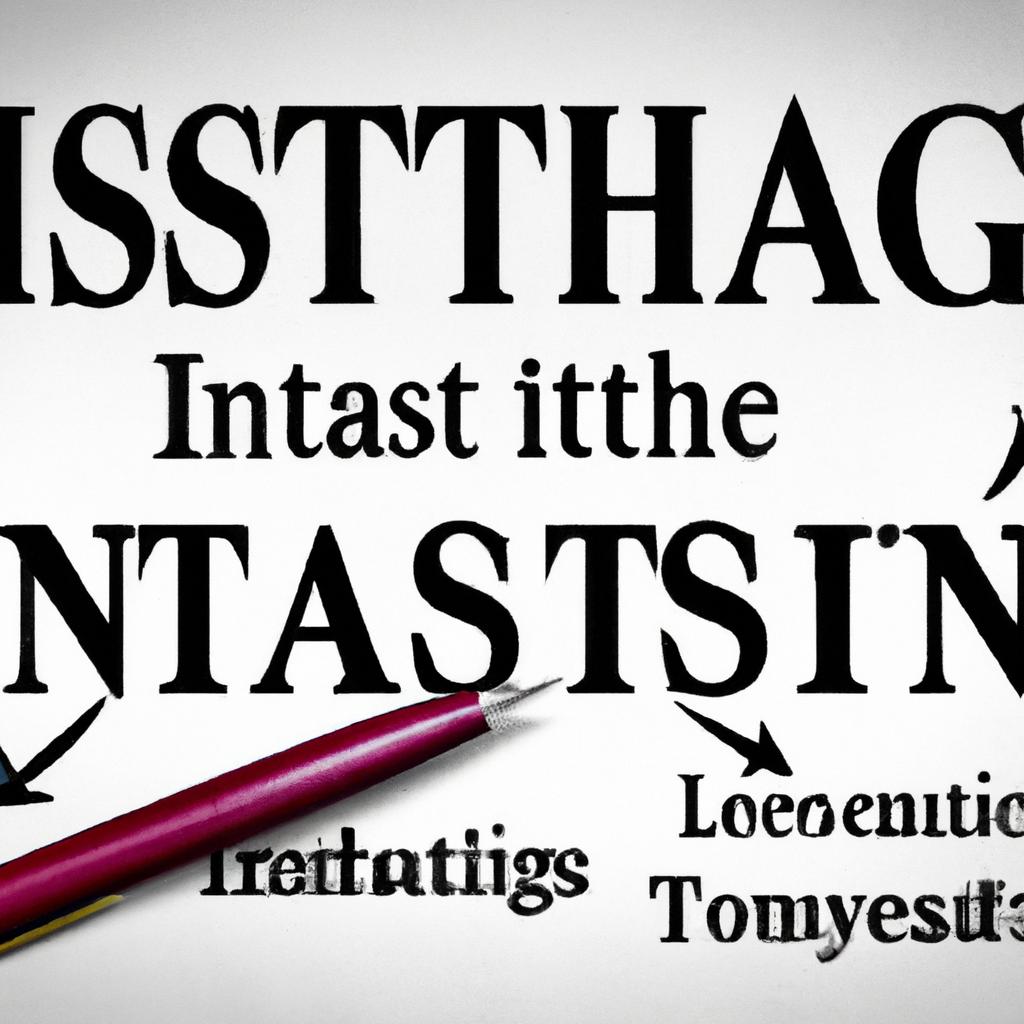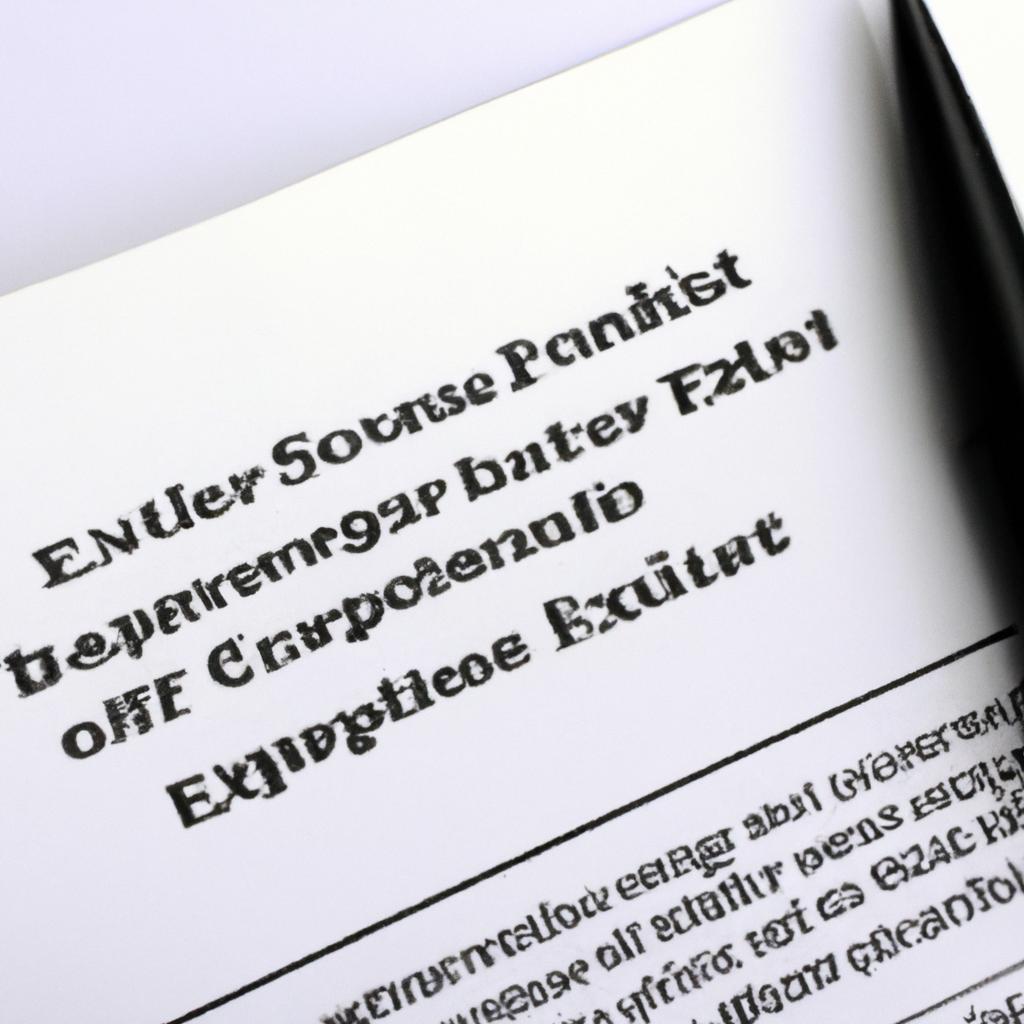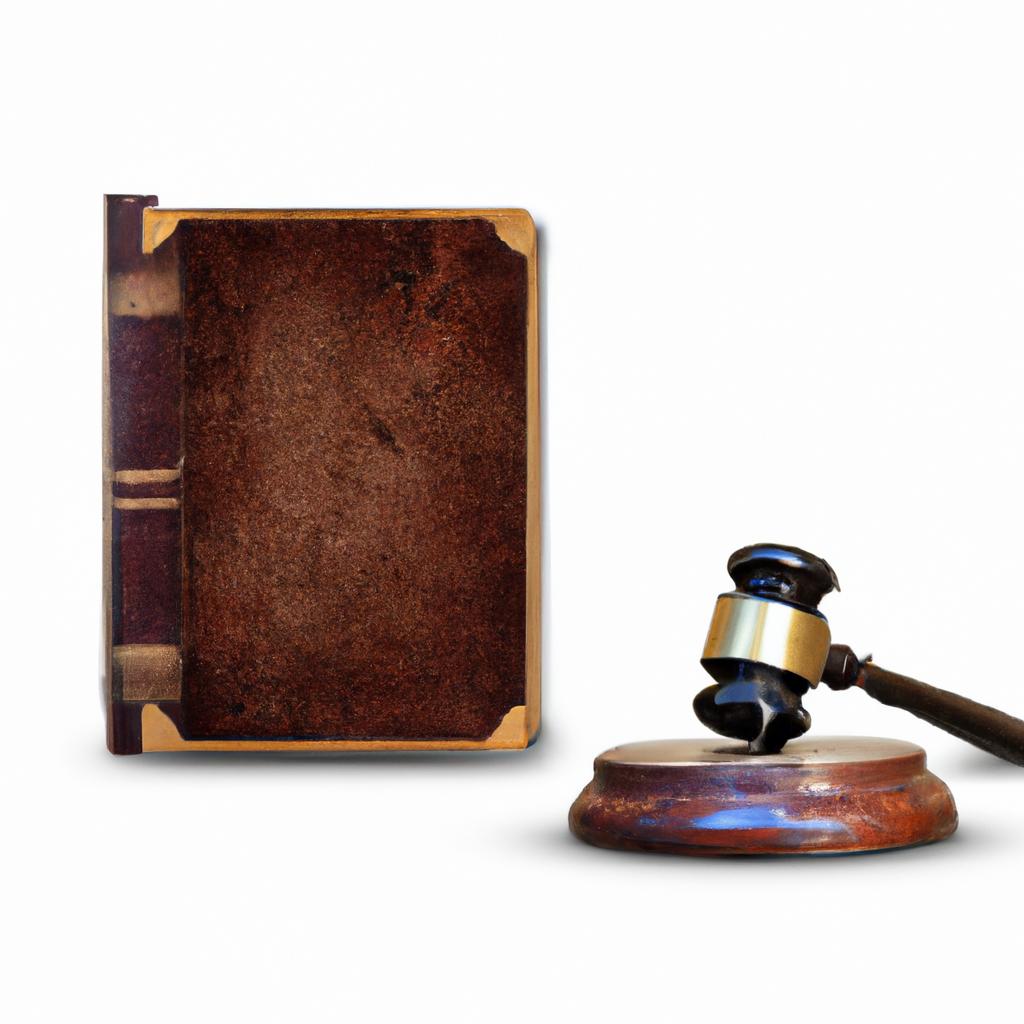When one passes away without a will, they leave behind a tangled web of uncertainty and potential disputes for their loved ones to navigate. Dying intestate, or without a valid will in place, can lead to a myriad of complications in the distribution of assets and the settling of the deceased’s affairs. In this article, we will delve into the significance of dying intestate and the implications it can have on one’s estate. As experienced probate attorneys at Morgan Legal Group in New York City, we understand the importance of estate planning and the consequences of failing to do so. Join us as we explore the intricacies of dying intestate and the steps that can be taken to avoid such a scenario.
Understanding the High Stakes of Dying Intestate
When a person passes away without a valid will, they are said to have died intestate. This means that their assets and estate will be distributed according to state laws rather than their own wishes. Understanding the implications of dying intestate is crucial, as it can have significant consequences for both the deceased individual and their loved ones.
The high stakes of dying intestate include:
- Uncertainty: Without a will, there is uncertainty about how the deceased individual’s assets will be divided, which can lead to family disputes and legal battles.
- No Control: Dying intestate means that the deceased has no control over who inherits their assets, which can result in their assets being distributed in a way that they would not have wanted.

Key Consequences of Failing to Have an Estate Plan
When a person passes away without a valid estate plan, they are said to have died intestate. This means that the distribution of their assets will be determined by the state’s intestacy laws, rather than their own wishes. Not having an estate plan in place can lead to several key consequences that can greatly impact your loved ones and your legacy.
Some of the include:
- Assets being distributed according to state laws rather than your wishes
- Potential lengthy and costly probate process
- Lack of control over who will manage your affairs or make decisions on your behalf
- Higher estate taxes and potential loss of wealth
- Family conflict and disputes over asset distribution

The Complex Process of Intestate Succession
When someone passes away without a valid will in place, their estate is subject to . This means that the distribution of their assets will be determined by the state’s laws rather than their own wishes. The laws governing intestate succession can vary depending on the jurisdiction and can be quite intricate and detailed.
One of the key challenges of intestate succession is that it can lead to disputes among family members over who is entitled to inherit the deceased person’s assets. In these cases, it is crucial to seek the guidance of an experienced estate planning attorney to navigate the legal complexities and ensure that the assets are distributed in accordance with the law. At Morgan Legal Group, our team of experts specializes in estate planning, probate, elder law, Wills, and trusts, and we are here to help you through the intricacies of intestate succession.

Expert Guidance on Avoiding Intestacy Issues
When a person passes away without a valid Will in place, they are said to have died intestate. This means that their assets and property will be distributed according to the laws of the state in which they reside. Intestacy issues can cause a range of complications for loved ones left behind, including delays in the distribution of assets and disputes among family members.
To avoid intestacy issues, it is essential to seek expert guidance from an experienced estate planning attorney. A legal professional can help you create a comprehensive Will that clearly outlines your wishes for the distribution of your assets. By working with a lawyer, you can ensure that your loved ones are taken care of and that your estate is distributed according to your wishes.
Q&A
Q: What does “dying intestate” mean?
A: Dying intestate means passing away without a valid will in place to dictate how your assets should be distributed.
Q: What happens if someone dies intestate?
A: When someone dies intestate, their assets are distributed according to the laws of intestacy in their state or country, rather than according to their own wishes.
Q: Can anyone die intestate?
A: Yes, anyone can die intestate if they have not made a will or if their will is deemed invalid.
Q: What are the consequences of dying intestate?
A: The consequences of dying intestate can include lengthy court proceedings, disputes among family members, and the possibility of assets being distributed in a way that the deceased may not have wanted.
Q: How can someone avoid dying intestate?
A: To avoid dying intestate, it is important to create a valid will that clearly states how you want your assets to be distributed after your death.
Q: Is dying intestate common?
A: Dying intestate is more common than many people realize, as it is estimated that over half of adults do not have a will in place.
Q: What should someone do if a loved one has died intestate?
A: If a loved one has died intestate, it is important to seek legal advice to understand the laws of intestacy in your state or country and to ensure that their assets are distributed appropriately.
Wrapping Up
In conclusion, dying intestate may not be the most ideal situation for any individual. It can lead to confusion, disputes, and potentially leave loved ones with unnecessary burdens. By taking the time to create a will, you can ensure that your wishes are carried out properly and provide peace of mind for your heirs. So, don’t leave things to chance – take control of your legacy and plan for the future today.
 When we think about our future, it’s natural to start thinking about what will happen to our assets and belongings once we are no longer here. Creating a will is a crucial step in ensuring that our wishes are carried out and our loved ones are taken care of. However, not everyone gets around to writing a will, and if this is the case, dying intestate may occur. In this article, we will explore what dying intestate means, the consequences of dying without a will, and what can be done to avoid it.
When we think about our future, it’s natural to start thinking about what will happen to our assets and belongings once we are no longer here. Creating a will is a crucial step in ensuring that our wishes are carried out and our loved ones are taken care of. However, not everyone gets around to writing a will, and if this is the case, dying intestate may occur. In this article, we will explore what dying intestate means, the consequences of dying without a will, and what can be done to avoid it.
Dying intestate means passing away without a valid will in place. It is also known as dying without a will or intestate succession. In simpler terms, it means that the deceased did not leave any instructions on how to distribute their assets and did not appoint an executor to manage their estate. As a result, the state’s laws will determine how the assets will be divided among the deceased’s heirs.
There can be various reasons why someone may die intestate. It could be due to procrastination, not wanting to face the reality of death, lack of knowledge about estate planning, or simply not having the time or resources to create a will. However, the consequences of dying intestate can be significant and may not align with the deceased’s wishes. Let’s take a closer look at some of the potential consequences.
1. State laws determine how assets are distributed
When someone dies intestate, the state’s laws will determine how their assets will be distributed among their heirs. These laws are known as intestacy laws and vary from state to state. In general, assets are divided among surviving spouses, children, parents, and other close relatives. If someone does not have any living relatives, their assets may end up belonging to the state.
2. Loved ones may not receive what they were expecting
Without a will in place, there is no clear outline of how the assets should be distributed. This can lead to disputes and disagreements among family members and loved ones, causing unnecessary stress and tension during an already difficult time. In some cases, the deceased’s assets may also end up being divided in a way that they would not have wanted.
3. Court-appointed executor
In a will, a person appoints an executor who is responsible for managing their estate and ensuring that their final wishes are carried out. When someone dies intestate, the court will appoint an executor to handle the deceased’s affairs. This person may not be someone the deceased would have chosen, and it can lead to delays and complications in managing the estate.
4. Longer and costlier Probate process
Probate is the legal process of distributing a deceased person’s assets. In the case of dying intestate, this process can be longer and more costly compared to when a will exists. This is because the court will have to determine how the assets will be divided, and various legal steps need to be taken to ensure a fair distribution.
5. Inheritance tax complications
Inheritance tax is a tax imposed on assets that are received by heirs from a deceased person. The tax rate and exemptions vary from state to state, and without a will, the estate may be subject to higher taxes if it falls under certain thresholds. It is essential to have a will to minimize the tax implications on the estate and ensure that it is passed on to the intended beneficiaries.
Now that we have explored the potential consequences of dying intestate let’s discuss what can be done to avoid it.
1. Write a will
The most effective way to avoid dying intestate is by writing a will. It doesn’t have to be a complicated and expensive process. There are many resources available, such as online templates and legal services, that can help create a valid will. A will ensures that your wishes are followed, your loved ones are taken care of, and it can also help minimize any disputes or disagreements among family members.
2. Keep your will up to date
Life is constantly changing, and it’s vital to keep your will up to date with any significant changes, such as a marriage, divorce, birth of a child, or change in financial circumstances. Reviewing your will every few years is also a good practice to ensure that it reflects your current wishes and intentions.
3. Consider consulting an estate planning attorney
While writing your will, it may be beneficial to seek professional advice from an estate planning attorney. They can provide guidance on how to structure your will and make sure that it is legally sound. They can also assist with minimizing any potential tax implications on your estate.
4. Understand your state’s laws
If you decide to write your own will, it’s important to have a basic understanding of your state’s intestacy laws. Each state has different rules regarding how assets are distributed among heirs, and knowing the laws can help you make informed decisions when creating your will.
5. Leave clear instructions for your executor
In your will, you can appoint an executor who will be responsible for carrying out your final wishes. It’s essential to choose someone you trust and who understands your wishes. It’s also helpful to leave detailed instructions for your executor on how to distribute the assets to avoid any confusion or disputes.
In conclusion, dying intestate can lead to unpredictable and at times, undesirable consequences. It’s crucial to have a valid will in place to ensure that your loved ones are taken care of and your assets are distributed according to your wishes. By understanding the potential consequences and taking the necessary steps to avoid dying intestate, you can have peace of mind knowing that your final wishes will be fulfilled.

